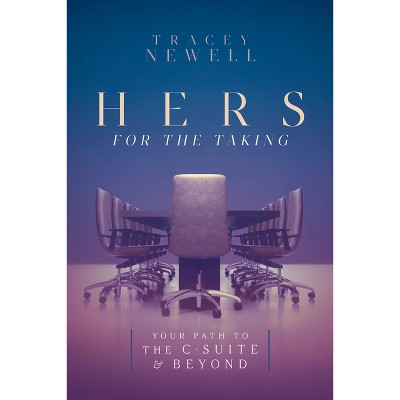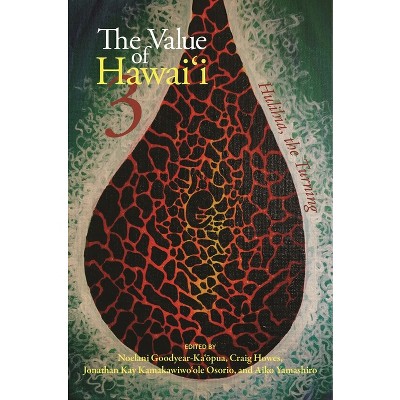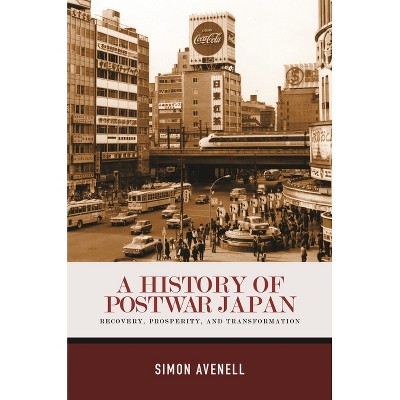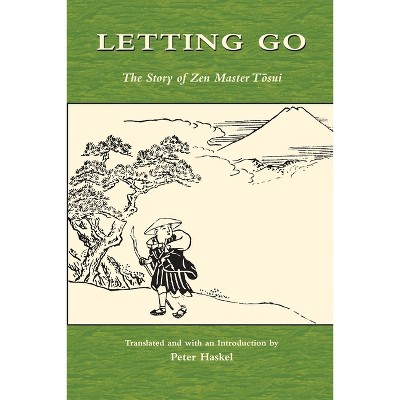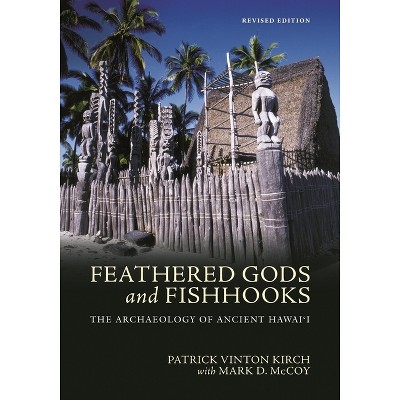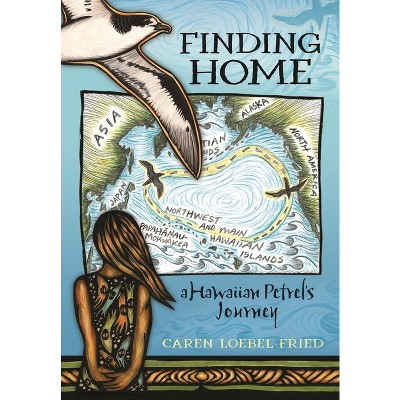Sponsored

Inclusion - by Tom Coffman (Paperback)
$23.49Save $1.50 (6% off)
In Stock
Eligible for registries and wish lists
Sponsored
About this item
Highlights
- Following December 7, 1941, the United States government interned 120,000 people of Japanese ancestry evicted from scattered settlements throughout the West Coast states, yet why was a much larger number concentrated in the Hawaiian Islands war zone not similarly incarcerated?
- About the Author: Tom Coffman is a political reporter and author of six books, including Nation Within and Catch a Wave.
- 384 Pages
- History, United States
Description
About the Book
"Following December 7, 1941, when the United States government interned 120,000 people of Japanese ancestry evicted from scattered settlements throughout the West Coast states, why was a much larger number concentrated in the Hawaiian Islands war zone not similarly incarcerated? At the root of the story is an inclusive community that worked from the ground up to protect an embattled segment of its population. Where the onset of World War II surprised the American public, war with Japan arrived in Hawai°i in slow motion. Responding to numerous signs of impending conflict, a Council for Interracial Unity mapped two goals: Minimize internment and maximize inclusion in the war effort. The Council's aspirational work was expressed in a widely repeated saying: "How we get along during the war will determine how we get along when the war is over." The Army Command of Hawai°i, reassured by first-hand acquaintances, came to believe "Trust breeds trust." Where most histories have shielded President Franklin D. Roosevelt from direct responsibility for the U.S. mainland internment, his relentless demands for a mass removal from Hawai°i-ultimately thwarted-reveal him as author and actor. In making sense of the disparity between Island and mainland, Inclusion unravels the deep history of the U.S. "sabotage psychosis," dissecting why many continental Americans still believe Japan succeeded at Pearl Harbor because of the unseen hand of Japanese saboteurs. Contrary to the explanation of hysteria as the cause of the internment, Inclusion documents how a high-level plan of mass removal actually was pitched to Hawai°i prior to December 7, only to be rejected"--Book Synopsis
Following December 7, 1941, the United States government interned 120,000 people of Japanese ancestry evicted from scattered settlements throughout the West Coast states, yet why was a much larger number concentrated in the Hawaiian Islands war zone not similarly incarcerated?
At the root of the story is an inclusive community that worked from the ground up to protect an embattled segment of its population. While the onset of World War II surprised the American public, war with Japan arrived in Hawai'i in slow motion. Responding to numerous signs of impending conflict, the Council for Interracial Unity mapped two goals: minimize internment and maximize inclusion in the war effort. The council's aspirational work was expressed in a widely repeated saying: "How we get along during the war will determine how we get along when the war is over." The Army Command of Hawai'i, reassured by firsthand acquaintances, came to believe that "trust breeds trust." Where most histories have shielded President Franklin D. Roosevelt from direct responsibility for the U.S. mainland internment, his relentless demands for a mass removal from Hawai'i--ultimately thwarted--reveal him as author and actor. In making sense of the disparity between Island and mainland, Inclusion unravels the deep history of the U.S. "sabotage psychosis," dissecting why many continental Americans still believe Japan succeeded at Pearl Harbor because of the unseen hand of Japanese saboteurs. Contrary to the explanation of hysteria as the cause of the internment, Inclusion documents how a high-level plan of mass removal actually was pitched to Hawai'i prior to December 7, only to be rejected.Review Quotes
Inclusion is of singular worldwide public and academic importance. It lifts up Hawai'i's interethnic history to show how small groups with a common goal and working cooperatively can result in wondrous social change.--Tetsuden Kashima, author of Judgment without Trial: Japanese American Imprisonment during World War II and Buddhism in America: The Social Organization of an Ethnic Religious Institution
Inclusion will reframe our understanding of World War II in significant ways. It is unlikely that a work of this breadth and magnitude will come around again anytime soon, especially as many of the historical actors interviewed by the author have already passed away. I know of no other that attempts to treat as many separate threads of historiography in a single account. This is not strictly military or cultural history, but a careful blend of a multitude of viewpoints--including a chapter on contemporaneous sociological accounts.--Corey M. Johnson, research associate, Stanford University and affiliate faculty, University of Hawai'i at Hilo
[Inclusion] is a fascinating study of the Council for Interracial Unity, a now largely forgotten race relations group located in the then-Territory of Hawai'i in the years surrounding World War II, and especially two of its outstanding members, the Chinese American social worker Hung Wai Ching and the Japanese American school principal Shigeo Yoshida. . . . Coffman is a dedicated researcher and skilled narrator who mixes biography and larger analysis gracefully. . . . The book has a real contribution to make to our knowledge of (Japanese) American history and the special set of forces in Hawai'i that preserved its interracial harmony through the depths of war.--Greg Robinson "Nichi Bei Weekly"
Tom Coffman, a political journalist and leading historian of modern Hawaii, shines new light on this crucial period [before and during WWII] in his engaging book. . . . Coffman focuses heavily on three men -- social activist Hung Wai Ching, schoolteacher Shigeo Yoshida and attorney Charles Hemenway -- who saw by the late 1930s that war with Japan was inevitable. . . . The details of this period are so little known that Coffman [is] able to deftly create suspense in the storytelling even though the outcome is known.--David Shapiro "Honolulu Star-Advertiser"
Tom Coffman has broken new ground on the tragic history of Japanese American internment. Now we know the Hawai'i chapter is a crucial part of the story--and Coffman tells it with authority and verve.--Kai Bird, Pulitzer Prize-winning historian and director of the Leon Levy Center for Biography, CUNY Graduate Center
Brilliant and meticulous, Tom Coffman reveals the people and forces that spared territorial Hawai'i's Japanese populace from mass removal after Pearl Harbor and enabled its sons to serve America gallantly in World War II. The heroes of this true story--Ching, Yoshida, Burns, Shivers, and many more--were inspired by an idealism and aloha that the world can learn from today. Based on groundbreaking research, Coffman's compelling account gives them recognition that they richly deserve.--Mark Matsunaga, Hawai'i journalist and World War II historian
Tom Coffman has produced a definitive account of Americans of Japanese ancestry in Hawai'i during World War II. His book shows how local Japanese figures such as Shigeo Yoshida joined forces with a diverse group of allies, both inside and outside official circles, to mobilize Japanese communities in support of the war and the public in support of Japanese communities. They averted the tragedy of mass confinement, such as that on the US mainland, and their success made Hawai'i a model for inclusion of ethnic Japanese in mainstream society. Packed with fascinating details, Tom Coffman's work enlarges our understanding of this key era in American history.--Greg Robinson, Université du Québec à Montréal
About the Author
Tom Coffman is a political reporter and author of six books, including Nation Within and Catch a Wave. His widely aired documentaries include First Battle, Arirang, and Ninoy Aquino and the Rise of People Power. He is a three-time recipient of the Hawai'i Book Publishers Association's award for nonfiction, and for his cumulative work he received the Hawai'i Award for Literature.Dimensions (Overall): 8.9 Inches (H) x 6.0 Inches (W) x 1.0 Inches (D)
Weight: 1.4 Pounds
Suggested Age: 22 Years and Up
Number of Pages: 384
Genre: History
Sub-Genre: United States
Publisher: University of Hawaii Press
Theme: State & Local, West (AK, CA, CO, HI, ID, MT, NV, UT, WY)
Format: Paperback
Author: Tom Coffman
Language: English
Street Date: October 31, 2021
TCIN: 1006605163
UPC: 9780824888558
Item Number (DPCI): 247-37-8220
Origin: Made in the USA or Imported
If the item details aren’t accurate or complete, we want to know about it.
Shipping details
Estimated ship dimensions: 1 inches length x 6 inches width x 8.9 inches height
Estimated ship weight: 1.4 pounds
We regret that this item cannot be shipped to PO Boxes.
This item cannot be shipped to the following locations: American Samoa (see also separate entry under AS), Guam (see also separate entry under GU), Northern Mariana Islands, Puerto Rico (see also separate entry under PR), United States Minor Outlying Islands, Virgin Islands, U.S., APO/FPO
Return details
This item can be returned to any Target store or Target.com.
This item must be returned within 90 days of the date it was purchased in store, shipped, delivered by a Shipt shopper, or made ready for pickup.
See the return policy for complete information.
Frequently bought together

$8.99
Buy 1, get 1 50% off select books
5 out of 5 stars with 1 ratings

$8.06
MSRP $8.95
Buy 1, get 1 50% off select books
5 out of 5 stars with 1 ratings
Trending Non-Fiction

$15.68
Buy 1, get 1 50% off select books
4.8 out of 5 stars with 204 ratings

Highly rated
$19.31
was $20.98 New lower price
Buy 1, get 1 50% off select books
4 out of 5 stars with 65 ratings

$18.28
was $19.58 New lower price
Buy 1, get 1 50% off select books
4.7 out of 5 stars with 17 ratings

$4.59
MSRP $7.99
Buy 1, get 1 50% off select books
4.8 out of 5 stars with 123 ratings

$6.20
MSRP $10.95
Buy 1, get 1 50% off select books
4.8 out of 5 stars with 33 ratings

$7.09
MSRP $9.99
Buy 1, get 1 50% off select books
4.9 out of 5 stars with 46 ratings

